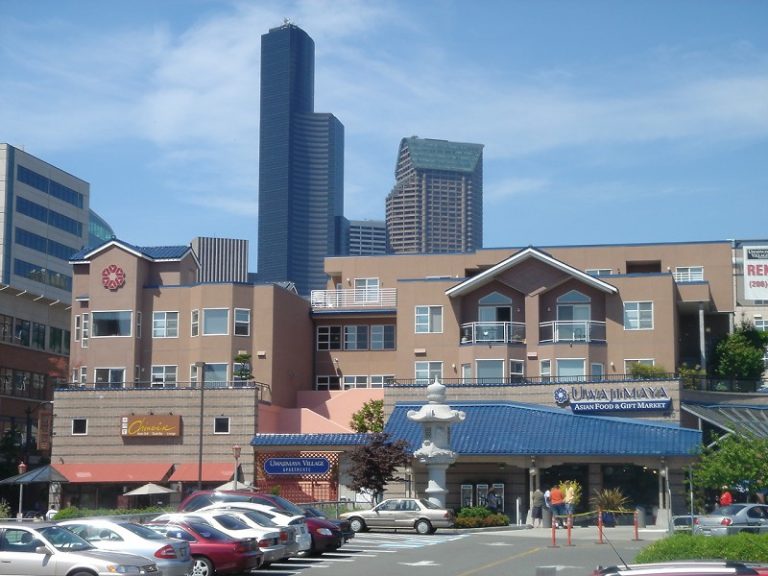Published on April 2, 2021

Since the beginning of the year, Asian Americans have come increasingly under violent attack. Elders have been assaulted in Chinatowns across the country from Oakland to San Francisco to New York City. In late February, Inglemoor High School Japanese teacher Noriko Nasu and her boyfriend were walking through Seattle’s Chinatown-International District (C-ID) and were attacked without provocation. Nasu was knocked unconscious, and her boyfriend required eight stitches. Asian American community members in Seattle had already been experiencing racial slurs and aggression at increased rates since COVID-19 began in 2020. Then, last week, a 21-year-old white man murdered 8 people at massage parlors 30 miles apart in Atlanta. Six of the victims were Asian women. The businesses were Asian-owned.
Stop AAPI Hate has reported 3,800 instances of hate over the past year. Women constituted more than half of the targets. Washington state ranks third after California and New York for states with the highest incidents reported. The rise in hate crimes and racially motivated incidents has been attributed to the previous administration’s characterization of COVID-19 as the “Kung Flu” or “China Virus.” But the truth is we have been here before many times. The Chinese Exclusion Act of 1882. Bellingham riots. Japanese Incarceration. The murder of Vincent Chinn, the backlash on Arab, Muslim, and South Asian Americans after 9/11 — and all the unreported instances in between, Asian Americans have been attacked, called racist slurs, spat on, murdered, etc.
Safety in Seattle’s Chinatown-International District
Seattle’s Chinatown-International District is not only the home of local businesses, it is also one of the few affordable safe havens left for low-income immigrants, many of whom are elders. During the pandemic, InterIm Community Development Association and other neighborhood advocacy organizations have been supporting residents and elders by getting them groceries and medical care, as well as doing weekly wellness checks and surveys to find out what else they might need. But there is an ongoing visceral fear for and among businesses and residents. Elders, who have been vulnerable targets in recent hate crimes, are afraid to go out for walks and grocery trips.
“How much more can one neighborhood take?” asked Pradeepta Upadhyay, InterIm CDA executive director. Ethnic neighborhoods like the C-ID have undergone centuries worth of disinvestment, she reminded. Redlining, for example, is the very reason Chinatowns exist and the beginning of this legacy. “With all the things we’ve been struggling around these past few years — the issue around homelessness, the issue around lack of public safety, increase in crime, and then now to have to protect the community against hate crimes. It’s raising more fear for the community and … as advocates for the community, it is a little unnerving to say what are we supposed to do?”
Reuben Deleon is lecturer at the University of Washington’s Department of American Ethnic Studies with a focus on education and Asian American studies. He is familiar with the struggles of engaging elders in frank conversations around race and justice and says it’s important to honor that they are still navigating their own journeys of survival. “We are the next iteration of trying to survive in this place, and we learn from them, even if we don’t agree with them,” he said. “We learn from what they taught us, and we expand there. We push the boundary of what they gave us.”
Deleon, who grew up in White Center, is a firm believer in the power of ethnic studies to critically challenge and transform our racist system. He is passionate about instilling students with agency and power. Learning local history and examining how race, immigration, and inequity have played out in the places we live is key to feeling empowered to act for change. “For some, [ethnic studies] is a form of healing. For others it’s the ‘aha’ moment of this is why it happens!” Deleon explained.
Ethnic studies is a very transformative way to answer the big questions that are coming out of our times, helping students understand why law enforcement officers target Black men, why hate crimes against Asian Americans go under-reported, and why a country that opens its doors to immigrants for labor will turn on them within a moment’s notice. Ethnic studies also offers countless examples of solidarity in the face of divisive messages.
Continue reading at South Seattle Emerald.
Originally written by Kamna Shastri for South Seattle Emerald.